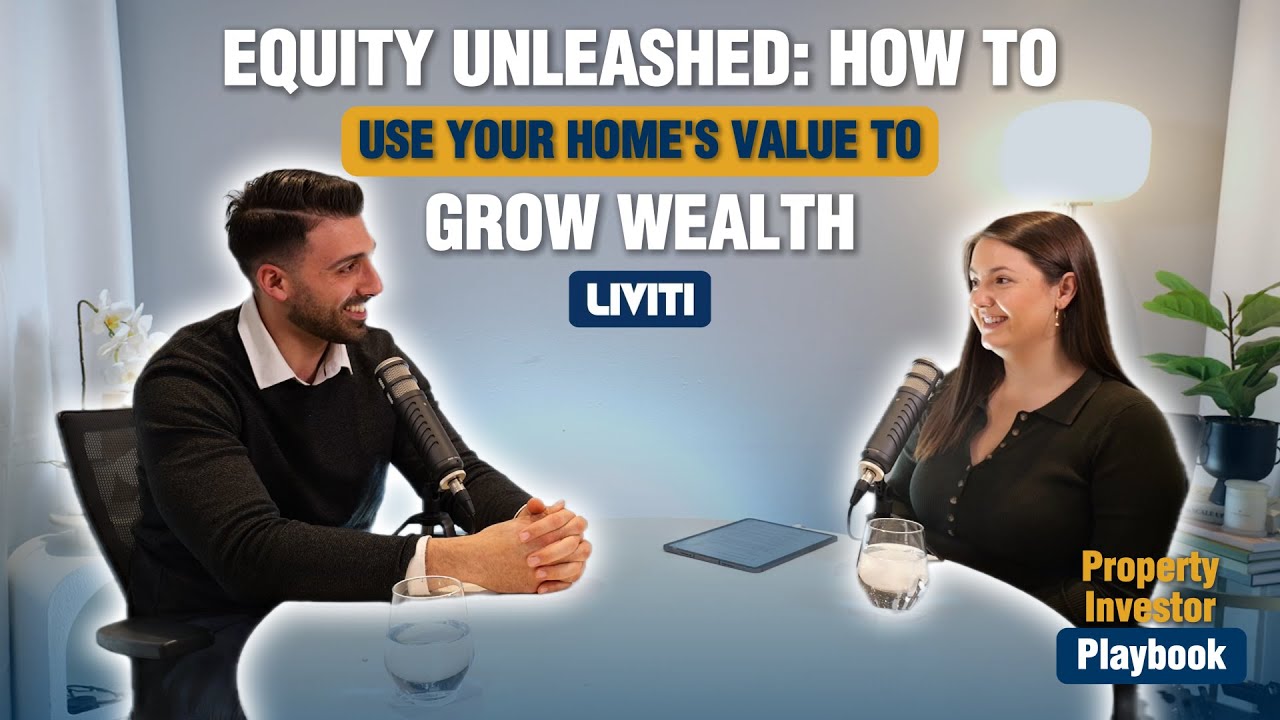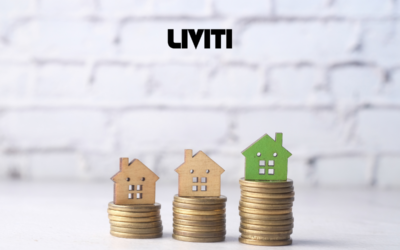In the latest episode of the Property Investor Playbook, hosts Lara and Daniel delve into the potent financial tool of home equity and its potential to catalyse wealth creation. They break down the often misunderstood concept of equity, distinguish between general equity and usable equity, and offer practical insights on leveraging it for smart investments.
The episode is rich with actionable advice for both seasoned property owners and those just starting their investment journey, making it a must-listen for anyone looking to optimise their financial growth.

Understanding Equity for Property Investment
Equity in the context of property investment refers to the difference between the current market value of your home and the outstanding balance on your mortgage. Lara and Daniel liken equity to cash that can be harnessed for various purposes, from buying additional properties to starting a business.
They emphasise that equity is not just an abstract financial term but a tangible asset that, when used wisely, can significantly enhance one’s financial position.
Watch the episode here:
One of the key takeaways from this segment is the distinction between general equity and usable equity.
General equity is the total value of your property minus any debt, while usable equity is the portion of this value that banks are willing to lend against.
Typically, banks allow you to access up to 80% of your home’s value without lenders mortgage insurance (LMI) and up to 90% with LMI.
The hosts provide a clear mathematical example to illustrate this concept, making it accessible even to those new to property investment.
Optimising Property Investments Through Equity
The home buying process can be daunting, particularly for first time home buyers. Lara and Daniel address common frustrations and highlight the importance of having a reliable support network, including knowledgeable brokers, to ease the journey.
They stress the need for a clear strategy and a well-defined purpose for the funds when tapping into home equity.
The conversation shifts to the
- Benefits of using debt to invest in appreciating assets like property
- Practical advice on planning with financial strategists
- Emphasis on understanding the risks before investing
- Encouragement to take calculated risks and overcome fear of missing potential opportunities
- Importance of targeting capital growth in high-demand areas
- Insights into current financial market trends to guide informed investment decisions

Navigating Property Investment Finance Strategy
Lara and Daniel delve into the strategic considerations necessary before making property purchases. They emphasise the importance of getting your financial position right, whether you already own property or are starting with savings.
Evaluating associated costs and consulting with a strategist or planner to create a solid plan are crucial steps to successful property investment.
The episode also highlights how Liviti can assist with both finance and investment needs, encouraging listeners to seek professional advice even if they are not immediately ready to buy.
Starting the conversation early can set you up for success in the future, and the hosts stress the importance of staying informed about market trends and opportunities.
Read More: How Paris Turned Her First Home Buyer Struggles into a Real Estate Strategy
Podcast Summaries
The episode is structured into three main chapters, each focusing on different aspects of leveraging home equity for property investment.
In the first chapter, “Understanding Equity for Property Investment,” Lara and Daniel explain the basics of equity and its importance in property investment. They provide a detailed explanation of how banks determine the amount of equity you can access and offer a practical example to help listeners calculate their usable equity.

The second chapter, “Optimising Property Investments Through Equity,” addresses the challenges of the process of buying a home and emphasises the importance of a solid support network. The hosts discuss strategic considerations before tapping into home equity and provide practical advice on planning with financial strategists or property financial advisors and aiming for capital growth in high-demand areas.
The final chapter, “Navigating Property Investment Finance Strategy,” explores current trends in the financial market and the importance of getting your financial position right. The hosts discuss the strategic starting points for those with existing properties and those with savings but no properties, stressing the importance of evaluating associated costs and consulting with a strategist or planner to create a solid plan.
Want to Listen to The Podcast? Click Here- https://www.buzzsprout.com/2384597/episodes
In Conclusion
The episode is a treasure trove of valuable insights and practical advice for anyone looking to leverage their home equity for smart investments.
Lara and Daniel’s engaging discussion demystifies the concept of equity and provides listeners with the tools and knowledge they need to navigate the property investment journey with confidence.
Whether you’re a seasoned property owner or just starting out, this episode of the Property Investor Playbook is a must-listen for anyone serious about building wealth through savvy equity management.

Frequently Asked Questions (FAQs)
1. What is home equity?
Usable equity is the portion of your home’s value that banks are willing to lend you against, after subtracting any remaining mortgage balance. It’s the amount you can access for investments or other purposes, typically up to 80% of your property’s value.
2. How does equity work when buying a second home?
When buying a second home, equity works by using the value of your current property as a deposit. This means you can access funds from your existing home to help with the purchase of the new one, making it easier to invest in additional properties.
3. How much equity do i have in my home?
To find out how much equity you have in your home, subtract your mortgage balance from your home’s current market value. For example, if your home is worth $500,000 and you owe $300,000 on your mortgage, you have $200,000 in equity.




